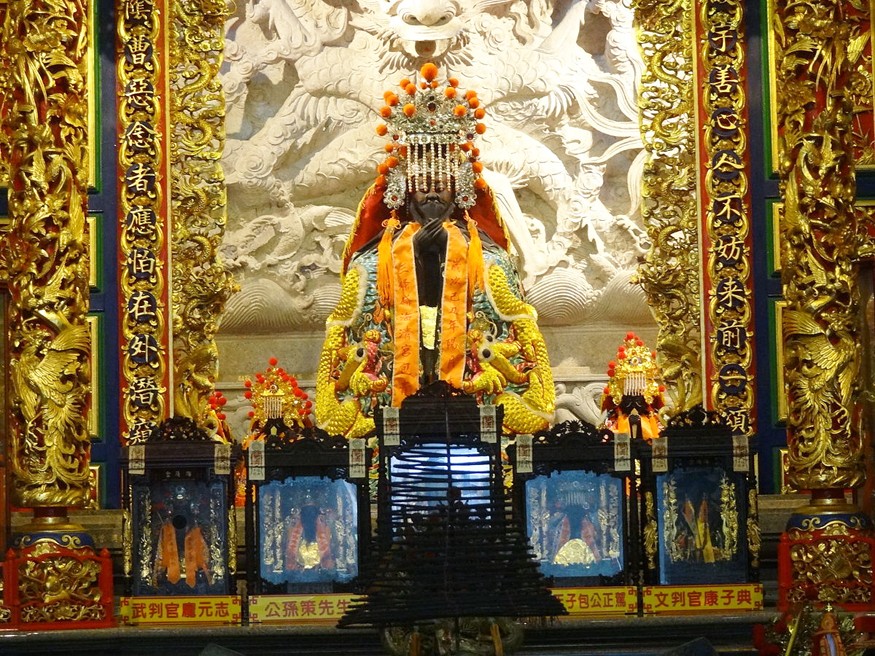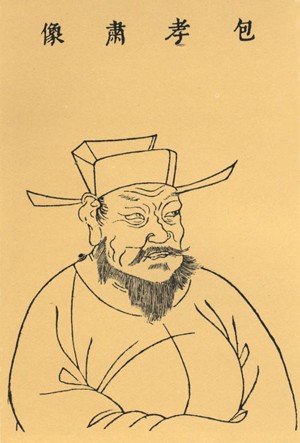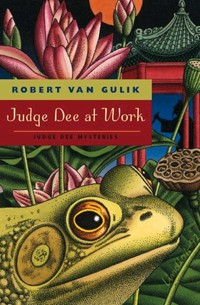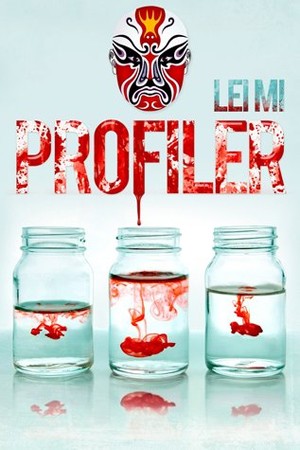
First published in the 1990s, Christopher West’s The China Quartet novels have been given a substantial rewrite by the author and are being issued as ebooks starting this month with Death of A Blue Lantern. When he looked back on his series the author decided they need more pace and darker overtones, though they’re still set during the 90s. In addition to writing novels, Christopher West is an expert on culture, travel and business in China, and here he looks at the history of Chinese crime fiction…
“The net of heaven is wide, no-one escapes.”
As with so many things, China was way ahead of the West in producing crime fiction. A genre known as gong’an began in the Song dynasty (960 to 1279): the term means a magistrate’s desk, and the modern equivalent would be police procedural. Stories would be narrated by wandering storytellers or in puppet shows, and usually told of upright officials exposing corruption and cover-ups. No examples of these stories have survived, however. The oldest gong’an tales come from the next dynasty, the Yuan (1279 to 1368).

Many feature Bao Zheng, a model official. He was a real person, born in modern Anhui Province in the year 999. He came from a poor family but, in true Chinese tradition, studied hard and passed the Imperial exams to join the government service. He specialised in court and legal matters, rising through the ranks to become a magistrate aged 39 and a ‘prefect’, senior magistrate, two years later. His career culminated as a ‘censor’, an overseer of government practice, in the Song capital, Kaifeng. Bao Zheng is famed for his impartiality – both towards his own family and towards potentially threatening court enemies (including the Emperor’s favourite concubine, someone it was not usually wise to cross). He died aged 63.
There are many Bao Zheng stories from the Yuan era. They are not whodunnits in the modern sense. The crime is usually described first, so readers know who the perp is. The suspense lies in how Bao Zheng will expose them. If there is a modern detective who approximates to Bao Zheng, it is Columbo.
Classic tales
The Circle of Chalk is the classic story of two mothers both claiming a child, who are told to put the little one in the centre of a chalk circle then each grab an arm and pull him out – the true mother loses the tussle, as she cannot bear to hurt the child. A Horse Thief is closely quizzed about the horse he claims to own, and his knowledge of the beast is revealed to be superficial – the true owner knows it has a broken back tooth, which the thief hadn’t noticed. In The Stone Lion, Bao tricks a corrupt official who has had his own brother thrown in jail to cover up his dishonesty, by getting the bad guy drunk.
In later stories, especially from the Qing dynasty (1644 to 1911), Bao Zheng is often portrayed with two helpers. Zhan Zhao is his bodyguard and a martial arts master. Gongsun Ce (pronounced Tsuh) is an older man, a medical specialist. We hear little of the Judge’s personal life.

Judge Dee
The other hero in the gong’an genre is Di Renjie, better known to western readers as Judge Dee. Di lived in the Tang dynasty (618 to 906), but the classic book of stories about him was not written until the 18th century. It was this work that Dutch sinologist and diplomat Robert van Gulik discovered in the 1940s, translated, then based his own wonderful 1950s series on.
Another traditional genre of Chinese crime fiction is wuxia. Wuxia is more like the modern thriller: action heroes (usually male) fight for justice using martial arts rather than intelligence. A common storyline is that a young man is tricked out of his inheritance, becomes a vagrant, learns both martial arts and the accompanying ethical code, then returns to oust the usurper. In other wuxia books, such as The Water Margin, a band of outlaws gets together and rights social wrongs. They’re China’s answer to Robin Hood.
The two genres can cross over – Bao Gong can appear in wuxia stories, either being protected by the young outlaws or providing moral or criminological guidance to them. Zhan Zhao is always ready to introduce a bit of wuxia action into an otherwise more cerebral gong’an mystery.
Popular today
Both genres – and both heroes – remain hugely popular all round South East Asia. A 1993 Taiwanese TV show based on Bao Zheng stories was originally planned to run to 15 episodes, but proved so popular that 236 were made. In 2008, mainland China paid the series the ultimate compliment by filming a remake – featuring the same lead actors as the original (Jin Chaochun, who played Bao, has now performed the role over 700 times). There is also a TV series based on imagined incidents from Bao’s early life which include romantic relationships for the ‘Young Justice’ and for Gongsun Ce (Zhan Zhao, one feels, is not a natural monogamist). My header for this piece comes from this series, where it is one of young Bao Zheng’s mottoes.

In crime fiction, the best-known modern Chinese writers writing about China are probably Qiu Xiaolong, Lisa See and Diane Wei Liang. They all live in the west, but write with authentic voices. Qiu and Wei Liang grew up in China but went into exile after the Tiananmen massacre in 1989. Indigenous crime writing is beginning to take off too. For most of the 20th century it suffered, first from being looked down on by literary intellectuals. Then, after 1949, it was banned as ‘bourgeois’ by Mao Zedong. The only crime fiction during his era dealt with unearthing counterrevolutionaries and foreign spies, though Chinese crime fans could still enjoy Conan Doyle, whose descriptions of Victorian poverty were seen as ideologically uplifting. Now, new works by Beijing-based He Jiahong (Hanging Devils), Mi Lei (Profiler) and Zhi Wen (whose works are yet to make it into English) are becoming known. Mainland Chinese crime writing is finding its feet.
Western crime writers have also turned their attention to China, such as Catherine Sampson, Peter May, Eliot Paterson. My own China Quartet came out in the 1990s, and I have now given it a major re-edit for 21st century e-publication. This includes renaming the central character Bao Zheng: a tribute to a tradition of crimebusting that goes back to a man who was righting injustices in Imperial Kaifeng while Britain was still run by the Saxons.







Great article, reminds me of one of the earliest precedents of forensic entomology that occurred in 13th-century China:
“A Chinese farmer was murdered by being slashed with a sickle. At an inquest, all the farmers of the village were asked to place their sickles on the ground. Within a short time, flies, apparently attracted to residual blood, landed on only one of the 70 to 80 sickles assembled, incriminating its owner as the murderer.”
— William L. Krinsky, Forensic Entomology (his reference was The washing away of wrongs: forensic medicine in thirteenth-century China by Ci Song and Brian E. McKnight)
That’s a fantastic reference, Jeremy. Thank you. It’s like ‘don’t follow the money, follow the flies.’